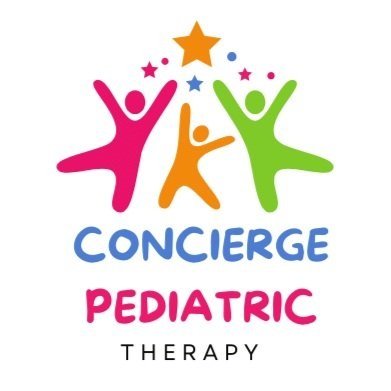Learn while having fun
As a speech-language pathologist (SLP), I often hear questions from parents about how to help their children develop speech, language, and communication skills. One of my favorite answers? Play with them! Play is one of the most effective and natural ways for children to learn, especially when it comes to communication. Through play, children explore their world, develop essential skills, and build the foundation for language and social interaction—all while having fun.e.
Why Play Matters
Play is the "work" of childhood, providing opportunities for children to develop across multiple domains. From an SLP’s perspective, play is much more than a way to pass the time; it is a powerful tool to support:
Language Development: During play, children hear and use language in meaningful contexts. Whether they're pretending to run a grocery store or building with blocks, they are exposed to new vocabulary, sentence structures, and opportunities to practice conversation.
Social Skills: Play promotes turn-taking, sharing, and understanding others’ perspectives, all of which are critical for effective communication.
Problem-Solving and Critical Thinking: Engaging in imaginative or structured play helps children learn to think flexibly, make decisions, and solve challenges, laying the groundwork for language comprehension and expression.
Making Play Purposeful at Home
Parents often wonder how to make playtime more meaningful for communication development. Here are some tips:
Follow Your Child’s Lead: Let them choose the activity and take the lead. By showing interest in their ideas, you model joint attention and encourage back-and-forth communication.
Narrate and Expand: Talk about what you’re doing together. If your child says, “Car!” you can expand with, “Yes, the red car is going fast!”
Use Repetition: Children learn through repetition, so don’t be afraid to play the same game or use the same phrases multiple times.
Add Challenges Gradually: As your child becomes more confident, introduce new vocabulary, ask open-ended questions, or encourage more complex problem-solving.
Keep It Fun: Play is most effective when it’s enjoyable and stress-free. Avoid pressuring your child to perform; instead, celebrate their efforts and progress.
The SLP’s Takeaway
Learning through play is not only effective but also essential for children’s development. It’s a natural and enjoyable way to foster communication, social skills, and cognitive growth. As an SLP, I encourage parents and caregivers to embrace play as a tool to connect with their children and support their learning. So, the next time you sit down for a pretend picnic or a round of a favorite game, remember: you’re not just playing—you’re building your child’s future, one joyful moment at a time.


